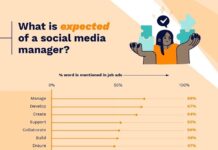A study published this January by the American Journal of Tropical Medicine and Hygiene examined the progression of the cholera epidemic in Haiti following the earthquake in 2010. Looking at Twitter updates and online news websites, the study revealed that the disease outbreak could be reliably tracked – in realtime – through social media.
Researchers used software called HealthMap to monitor how often the cholera epidemic was mentioned online during the first 100 days of the outbreak (from 10/20/10 through 1/28/11), and looked at the number of tweets mentioning cholera and #cholera.
The results included 4,697 online reports (in 8 languages) and 188,819 tweets, according to New Scientist, and this data enabled the researchers to follow the outbreak’s progression. The information from online sources “closely matched the official reports” from hospitals and health clinics. The difference? The data from HealthMap and Twitter was available in realtime, without the two week lag before the official reports were available.
New Scientist quotes the study’s lead author, Rumi Chunara, a research fellow at Harvard Medical School: “The techniques we employed eventually could be used around the world as an affordable and efficient way to quickly detect the onset of an epidemic and then intervene with such things as vaccines and antibiotics.”
Twitter has also been used to help track dengue fever outbreaks in Brazil and vaccinations in the US. It was also used to watch the progression of swine flu in 2009, although researchers noted that “For the general public, information overload can quickly turn into public hysteria.” With “swine flu,” “#swineflu” and “CDC” all appearing as trending topics, public health officials had to balance the usefulness of more people using Twitter (and reporting outbreaks) with potential “false positives” and mounting public fear (more at MSNBC).
Still, even with the potential short-comings, the opportunity to leverage realtime data to manage a fast-moving outbreak has enormous potential. When dealing with an epidemic like Haiti’s – where cholera has infected 520,000 people and killed more than 6,500 – having realtime access to this data could help save many lives.


